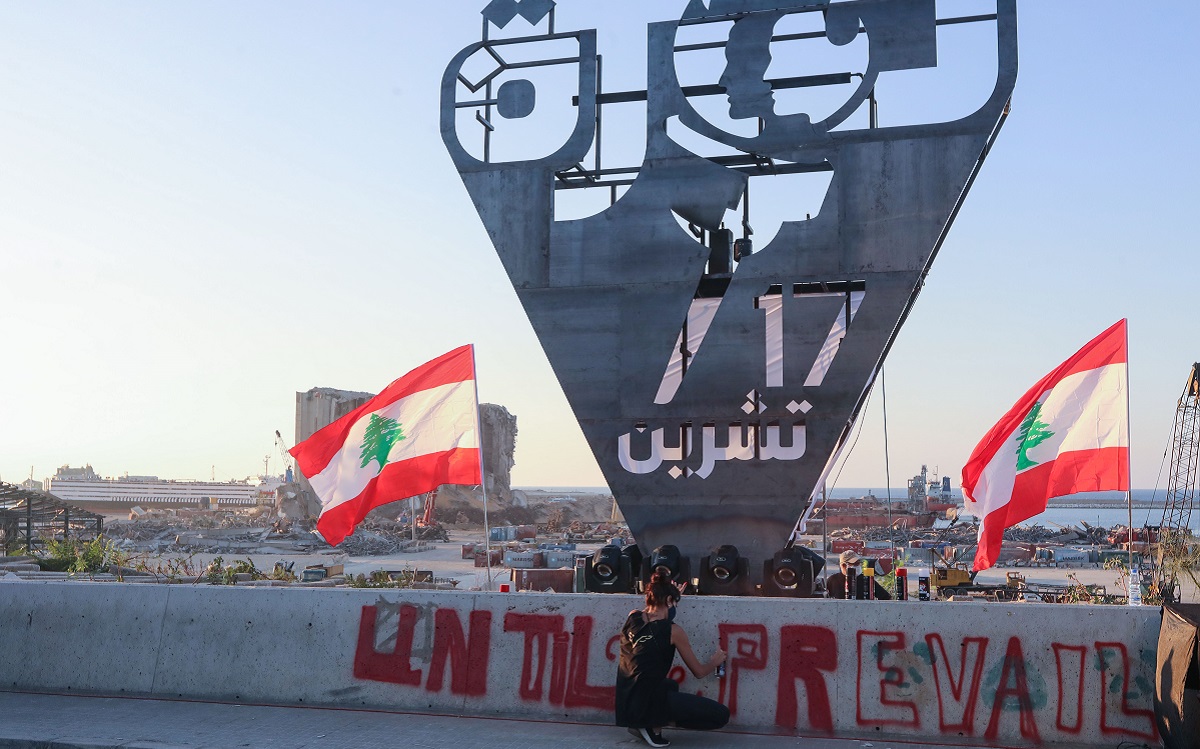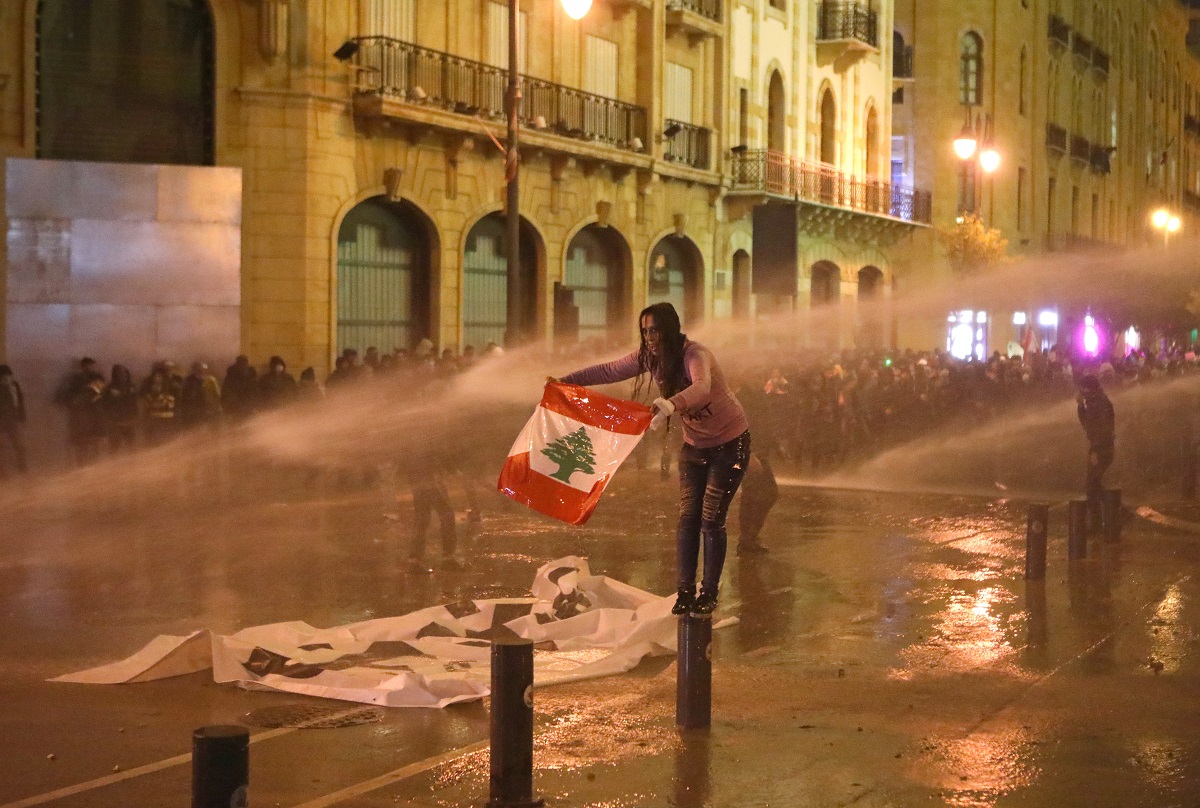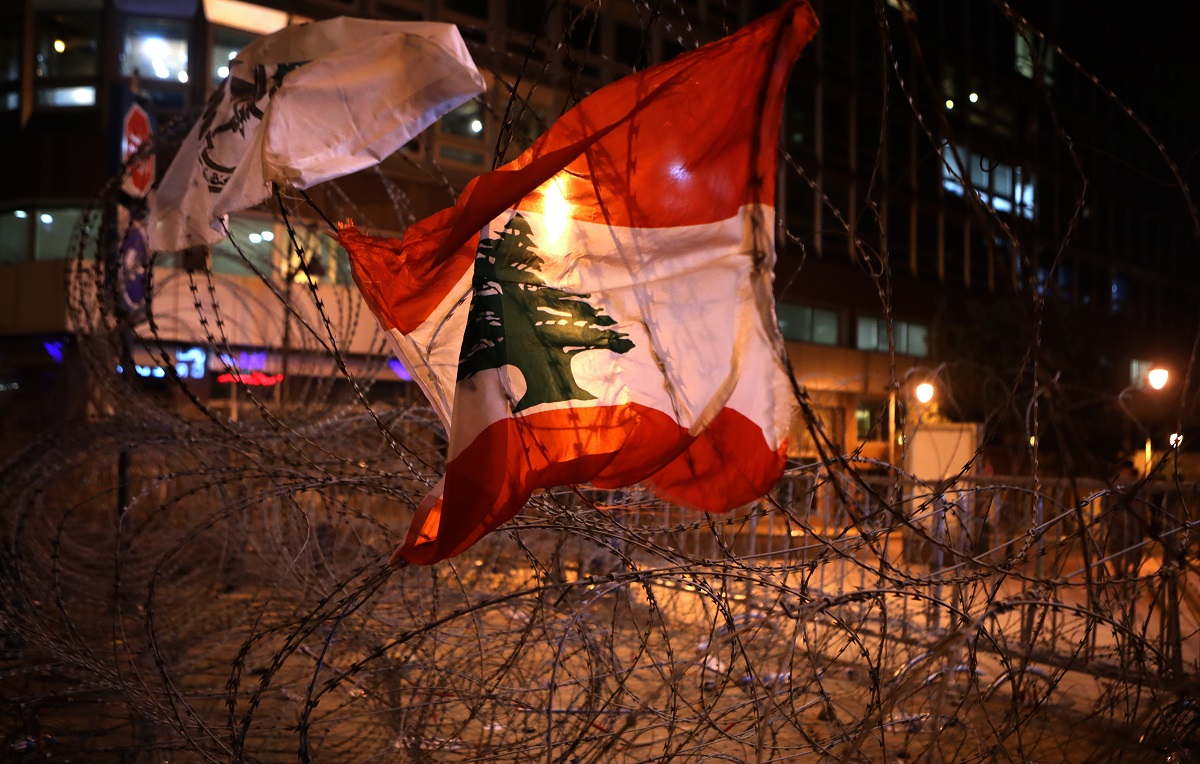
Do not blame October 17 parties for not uniting.
Whether on a single list or solid platform, their journey from protest to parliament was destined to divide.
Fragmentation is, however, not necessarily a failure. Remove the individual names that are familiar, from Paola Yacoubian to Naamet Frem and Michel Mouawad, and ignore the handful of MPs that represent Kataeb, a party that has had nearly nine decades to get it right…
And October 17 will quite possibly be left without a footprint in parliament.
Whether from leftist or right-leaning groups and the plenty of expressions in-between, the possibility of a victory on the horizon seems bleak.
Set the nasty internal fighting that comes with negotiation maneuvering and politicking, aside, there is simply no unity in Lebanon.
There is no list that can bring a sizable number of Lebanese together, and little defines us as one.
And all of that is entirely acceptable.
Disparate identity and communal-driven diversity keep us together rather than tear us apart. Our society allows for it, and had history danced to a different tune, there would be no country called Lebanon.

And in my particularly romantic interpretation of what modern Lebanon means, I think our sectarianism should never be the target. Our inefficient consensus-driven politics is both natural and in desperate need of an upgrade. Reforming (rather than destroying) power-sharing is the immediate goal at hand.
Perhaps this column often feels written by someone 140 years old rather than 40. But our first three decades of post-independence which too many of us seeking improvement ignore, or even condemn as defective and destined to fail, is what I want to catch up to and make up for lost time.
Before the region’s battles determined our politics, and destiny.
I am secular, through and through. I never found my Sunni bones or any religious inclination in me. I judge individuals by their measure and run away from group endeavor. If limited ego is permitted here, I would describe myself as a free thinker.
And that carefree luxury must be placed in perspective.
My cosmopolitan way of living is the breathing space afforded by Lebanon. It is the openness that pluralism provides, and I have grown up in those neighborhoods in Beirut while watching puritanism limit its realm. Similar pockets along the coast and mountains made that uniqueness stand out among a more conservative terrain.
You can be secular in a sectarian state. And no one in Lebanon should be afraid of secular governance if that, in the end, is what most of us desire.
Endless paralysis. A security condition that turns nationwide calls for reform into political degeneration, economic collapse and institutional failure.
Unity, imagined or real, stands no chance at changing that landscape. Protestors turned politicians pay a paramount price for geopolitics beyond their control.
But the challenge is to first work within a society that is as old as ours, accept history’s gravity, and gradually reform a country that has been prevented from functioning.
This may be slanderous among more determined October 17 supporters, but I think that noble movement was, first and foremost, a desperate plea for reform. An ambition that requires at least a generation to succeed. The other descriptions of what that massive protest entailed, from a rallying cry for a secular state to throwing away every political party and name pre-2019, is, in my own estimate, a substantially partial if not inaccurate reflection.
Poetry and prose that rings from the street is what you expect from any euphoric episode beckoning a better fate. And had it been a nationwide moment ushering in the system’s end, the regime would have crumbled from within.
It did not.

Force used by internal and other security was real. Barricades erected prevented access to parliament, and violence was employed to deter demonstrators.
But the population’s retreat was not there. The withdrawal came the moment Lebanon (bear with me here) came under attack.
On two fronts. The first, historic inertia that takes the majority of us behind predetermined lines, and when the amplification of ‘all means all’ becomes personal rather than political. Long before Kataeb or Hezbollah’s weapons entered the conversation, when a prime minister fell without the president and parliament speaker with him, the uneasiness of communal anxiety overtook the narrative. Saad Hariri – whether he succeeded or failed in his political career, and despite intense criticism within his own ranks – remains the most popular head of Lebanon’s Sunni community.
Had Michel Aoun and Nabih Berri self-exiled with him, I would apologize for my previous thirty entries and reassess my own convictions.
This may be a frowned upon lexicon by many within civil society and the more absolute of October 17, but looking away from it is escaping reality.
The second, a decades-old clampdown on our sovereignty. I have heard many ex-March 14 supporters turned October 17 believers repeatedly say that March 14 is dead. An assumption built on error and misread. The two uprisings, at their core, are the same at heart. Reform in 2005 demanded an end to the Syrian occupation. A yearning to reclaim lost independence and move on from Assad’s stranglehold over Lebanon. Leftists took part in that movement, and among them, a most inspiring historian, journalist and professor.
Samir Kassir was March 14, and he was with us on October 17.
The events that transpired after 2005 are a mirror reflection of what has occurred since 2019. An early division that quickly led to Michel Aoun’s departure along with a shift from adamant criticism to alliance with Hezbollah, and the current ideological divide that tore October 17 in half. A July 2006 war that emphasized Hezbollah’s proxy military role in determining war and peace, and an August 2020 port blast that implicated Lebanon’s continued role as the region’s battlefield. A Special Tribunal for Lebanon meant to deter further assassination (as twelve other successful executions took place) culminating in a verdict without arrest, and Fadi Sawan and Tarek Bitar’s local investigation into the port blast that has been shackled from its onset. Attempts at upending a parallel telecommunications network and airport cameras installed by Hezbollah in May 2008 met by urban warfare and a Doha agreement of forced national unity, and a Hezbollah-led protest in Tayyouneh last October positioned to turn violent followed by a postponement of Cabinet meetings until Bitar’s work halted.
If there is a long-term answer we can rally around, it is one that acknowledges our sectarian complexities and layered identities, and demands the groundwork necessary for movements to move forward and reform. Rather than stumble and splinter.
Endless paralysis. A security condition that turns nationwide calls for reform into political degeneration, economic collapse and institutional failure.
Unity, imagined or real, stands no chance at changing that landscape. Protestors turned politicians pay a paramount price for geopolitics beyond their control.
Their pleas for reform fade as the regime survives, intact, bent to Hezbollah’s needs. Impunity against all of us continues without end. And diplomats that could use leverage to end our status quo prefer discussions on gender quotas and environmental awareness rather than tough negotiations with Iran.
Even when we stand divided and fall united, local issues are ours to solve. The question is how to get there, and shorter attention spans are missing the story.
History is designed to take its time.
If there is a long-term answer we can rally around, it is one that acknowledges our sectarian complexities and layered identities and demands the groundwork necessary for movements to move forward and reform. Rather than stumble and splinter.
Ronnie Chatah hosts The Beirut Banyan podcast, a series of storytelling episodes and long-form conversations that reflect on all that is modern Lebanese history. He also leads the WalkBeirut tour, a four-hour narration of Beirut’s rich and troubled past. He is on Facebook, Instagram, and Twitter @thebeirutbanyan.
The opinions expressed are those of the author only and do not necessarily reflect the views of NOW.







